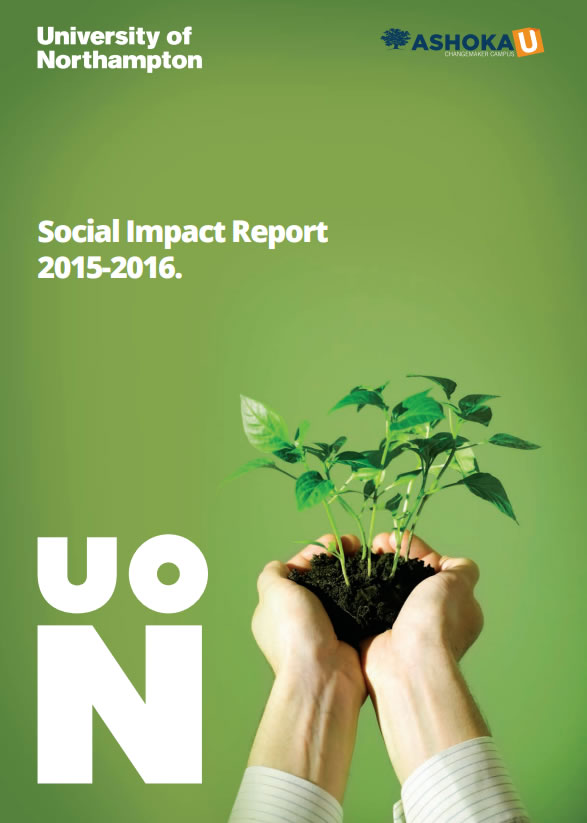New report demonstrates how the University of Northampton is creating positive social change
Date 9.03.2017
9.03.2017
The University of Northampton is committed to Transforming Lives + Inspiring Change. The release of the 2015-2016 Social Impact report highlights just some of the ways in which we are creating a positive social impact locally, regionally, nationally and globally that makes a difference to the lives of people and the environment.
Professor Simon Denny, Executive Dean for Research, Impact and Enterprise, said: “The way in which we create a positive effect reaches far beyond the University of Northampton’s campuses; we work closely with the communities around us to use our academic expertise, impactful research and passion to help identify and work on solutions to social problems.
“The report gives an increasingly positive picture of the ‘good stuff’ that we do and I am delighted with the support we have had from colleagues throughout the University.”
Some of the highlights from the report include:
- The University’s Enterprise Club supported the start-up and growth of 52 new social enterprises and businesses, helping to make Northamptonshire the best county to start, build and run a business;
- In Summer 2016, 1,200 pupils from 22 secondary schools and 500 pupils from 50 primary schools visited the University as part of the ‘Aspire Me’ programme, helping to make Northamptonshire the best county in the UK for children and young people to flourish and learn;
- The University was awarded £150,000 from the Northamptonshire Police and Crime Commissioner (PCC) to support community organisations to develop innovative and enterprising public safety initiatives. A total of 20 organisations working in six areas were supported through this programme;
- A total of 152 solar panels helped the University deliver increased amount of renewable energy
- As part of our Waterside Campus development, over 280 local people are employed on site through the project supply chain
- Through the work of academics and students in the field of Special Education and Inclusion, we’ve helped to influence of childhood experiences of women within a small community in Bangalore.